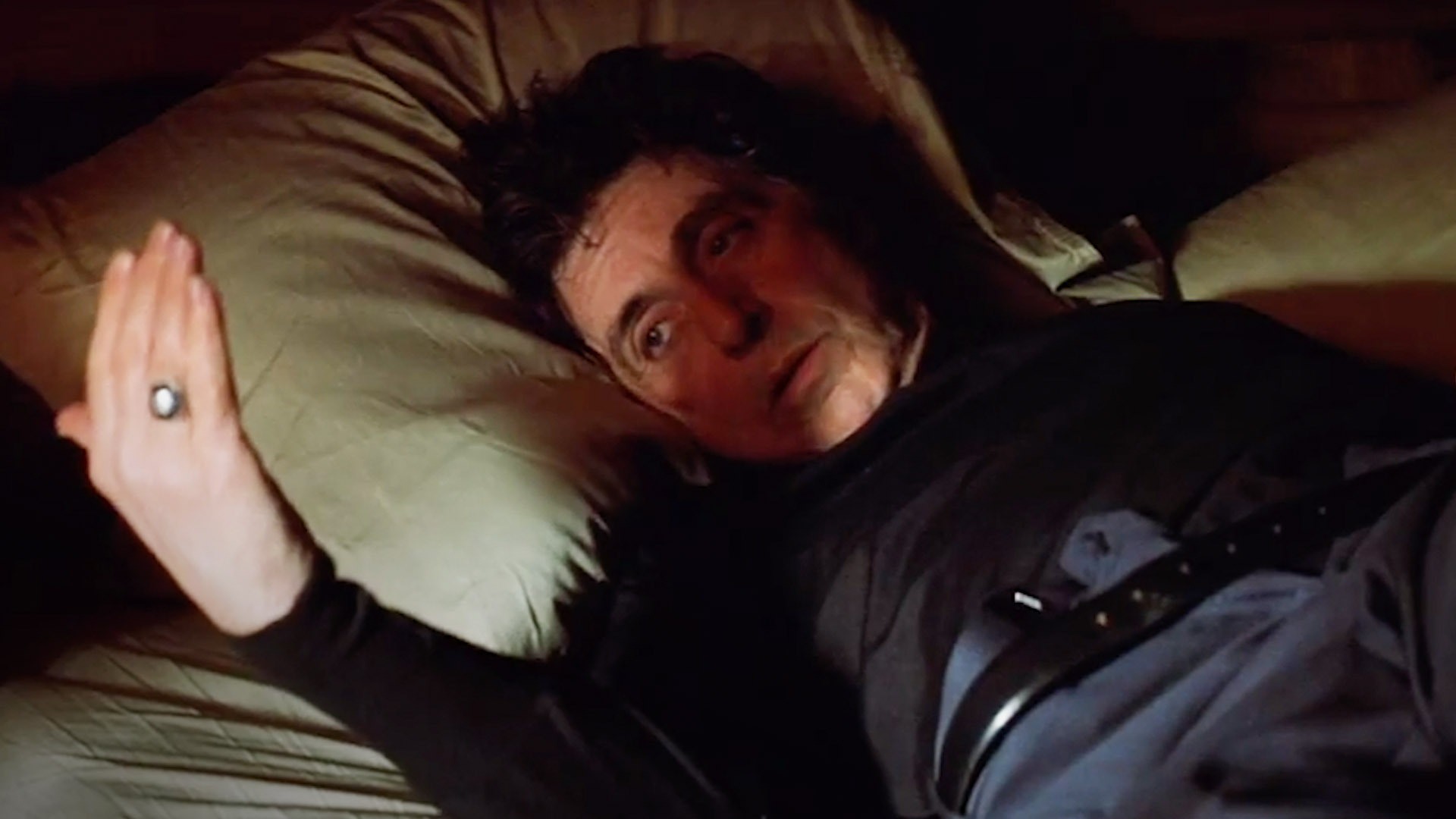Insomnia (2002)

Insomnia is a 2002 psychological thriller directed by Christopher Nolan, with a screenplay by Hillary Seitz. The film stars Al Pacino, Robin Williams, and Hilary Swank. Set in the small town of Nightmute, Alaska, the movie follows an experienced detective, Will Dormer (Al Pacino), who is sent to investigate a murder. However, as the case unfolds, Dormer begins to suffer from severe insomnia, and his moral compass starts to unravel. Insomnia explores themes of guilt, justice, and the psychological toll of facing one’s own darkness, set against the backdrop of constant daylight in the Alaskan wilderness.
The film begins with two Los Angeles detectives, Will Dormer (Pacino) and his partner, Hap Eckhart (Martin Donovan), being sent to Alaska to investigate the murder of a teenage girl. During the investigation, Dormer becomes increasingly disturbed by the haunting nature of the case. In the process, he unintentionally shoots his partner, Hap, in a moment of disorientation, and attempts to cover up the accidental killing. As Dormer’s sleeplessness intensifies, he begins to lose his grip on reality, further complicating his ability to solve the case. He becomes entangled with the prime suspect, Walter Finch (Robin Williams), a local man who knows more than he lets on and plays a dangerous game with Dormer’s fractured mind.
One of the most significant themes of Insomnia is guilt and moral ambiguity. Detective Dormer is a man who has spent his career in pursuit of justice, but his past mistakes and the accidental shooting of his partner haunt him throughout the film. His insomnia worsens as his conscience begins to weigh heavily on him, and he becomes increasingly desperate to cover up his actions. The moral complexity of his character deepens as he finds himself torn between his duty to solve the case and his desire to protect himself from exposure. The film raises important questions about the ethical choices people make when they are under pressure and whether it is possible to escape guilt.
Insomnia also explores the psychological deterioration of its main character. Will Dormer’s inability to sleep in the constant daylight of Alaska reflects his inner turmoil. As his sleeplessness worsens, he becomes increasingly paranoid, disoriented, and unstable. This psychological breakdown not only impacts his work but also his personal life, as he struggles to maintain a facade of control. Christopher Nolan effectively uses the isolation of Alaska and the relentless daylight to enhance the sense of Dormer’s mental unraveling. The film highlights how sleep deprivation can distort perception, erode moral judgment, and push a person to make dangerous decisions.

The performances in Insomnia are exceptional, with Al Pacino delivering a compelling portrayal of a detective who is both skilled and deeply flawed. Pacino captures Dormer’s internal conflict, providing a nuanced performance that conveys the emotional and psychological strain he endures throughout the film. Robin Williams, in a rare dramatic role, plays the calm yet sinister Walter Finch with chilling precision. Williams’ character is both a manipulator and a mirror to Dormer’s troubled mind, and the tension between the two actors creates a gripping dynamic. Hilary Swank also shines as the dedicated local detective, Ellie Burr, who suspects Dormer’s involvement in the cover-up and serves as a moral counterpoint to his character.

The suspense and atmosphere in Insomnia are masterfully crafted, with Christopher Nolan using the stark, unrelenting daylight of Alaska as a key element in building tension. The town of Nightmute is depicted as a desolate, isolated place, heightening the feeling of entrapment and mental deterioration that Dormer experiences. The constant daylight creates a surreal, almost dreamlike quality, enhancing the film’s exploration of the psychological toll that sleep deprivation and guilt can have on the human mind. The slow pacing and strategic use of suspense keep the audience on edge, constantly questioning what is real and what is a product of Dormer’s fractured mind.

In conclusion, Insomnia is a gripping psychological thriller that explores the complexities of guilt, morality, and the mind’s fragility. With strong performances from Al Pacino and Robin Williams, and a masterful direction by Christopher Nolan, the film delves deep into the psychological and emotional turmoil of its characters. The unique setting of Alaska and the themes of sleep deprivation and moral ambiguity make Insomnia a tense, thought-provoking film that lingers long after the credits roll. As Nolan’s only film where he did not contribute to the screenplay, Insomnia stands as a testament to his ability to bring complex characters and psychological tension to life on screen.











